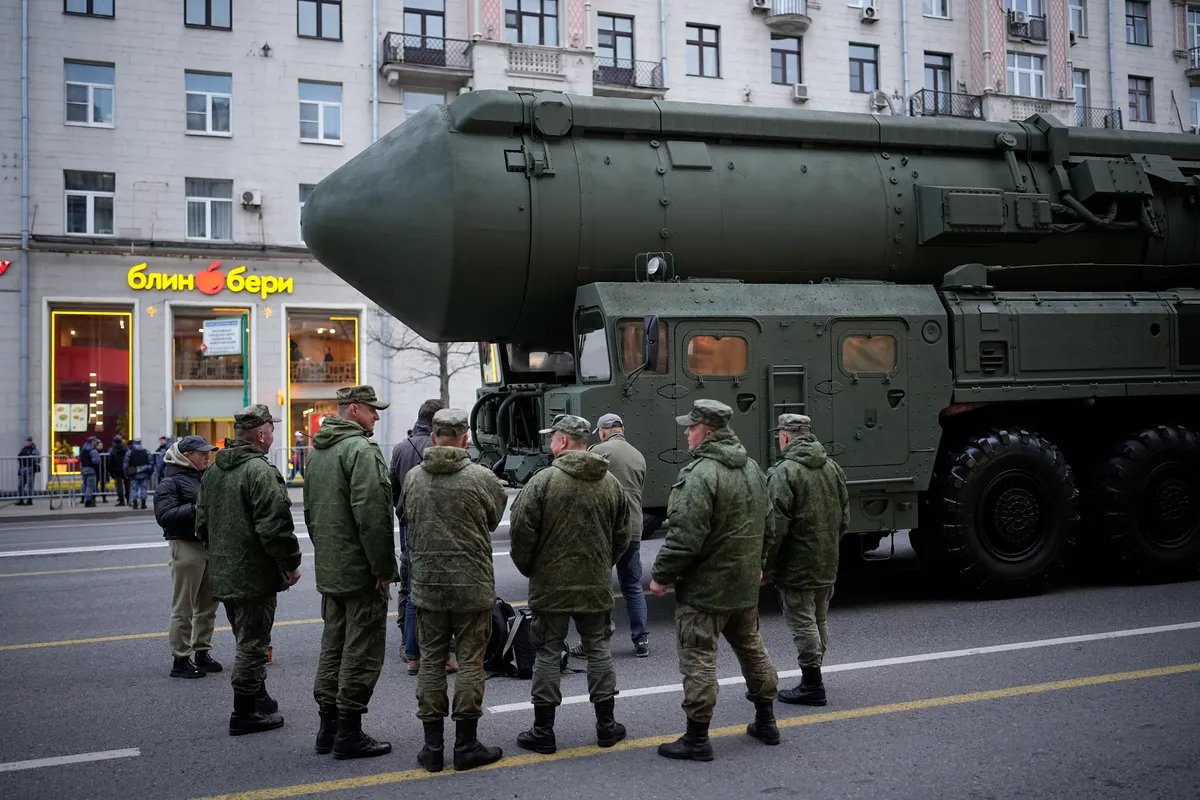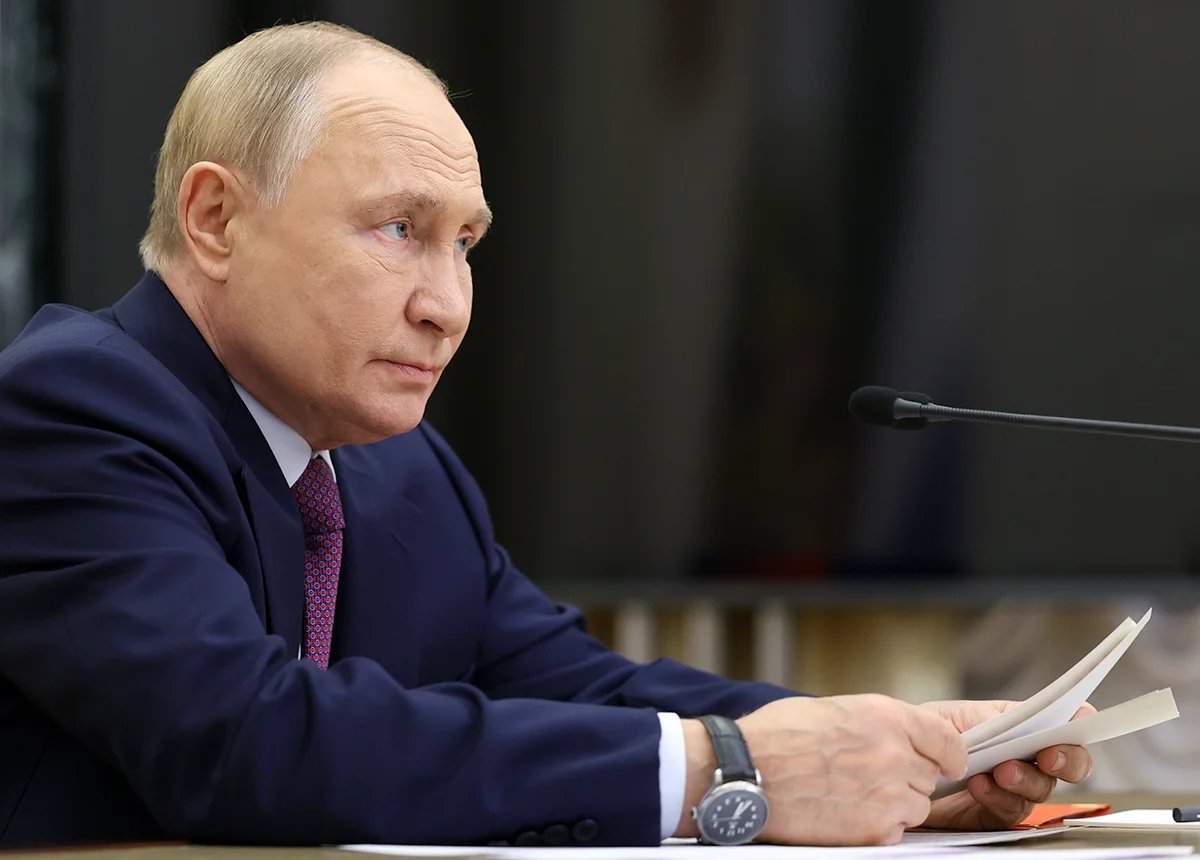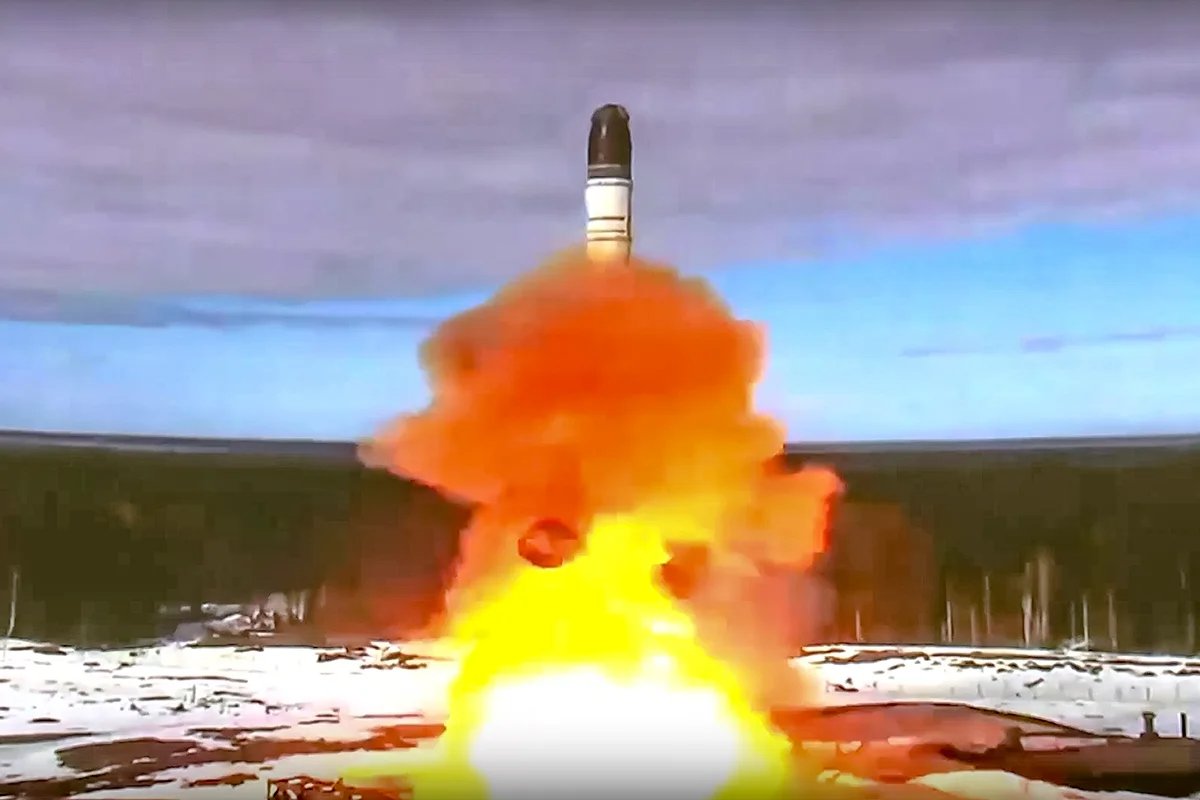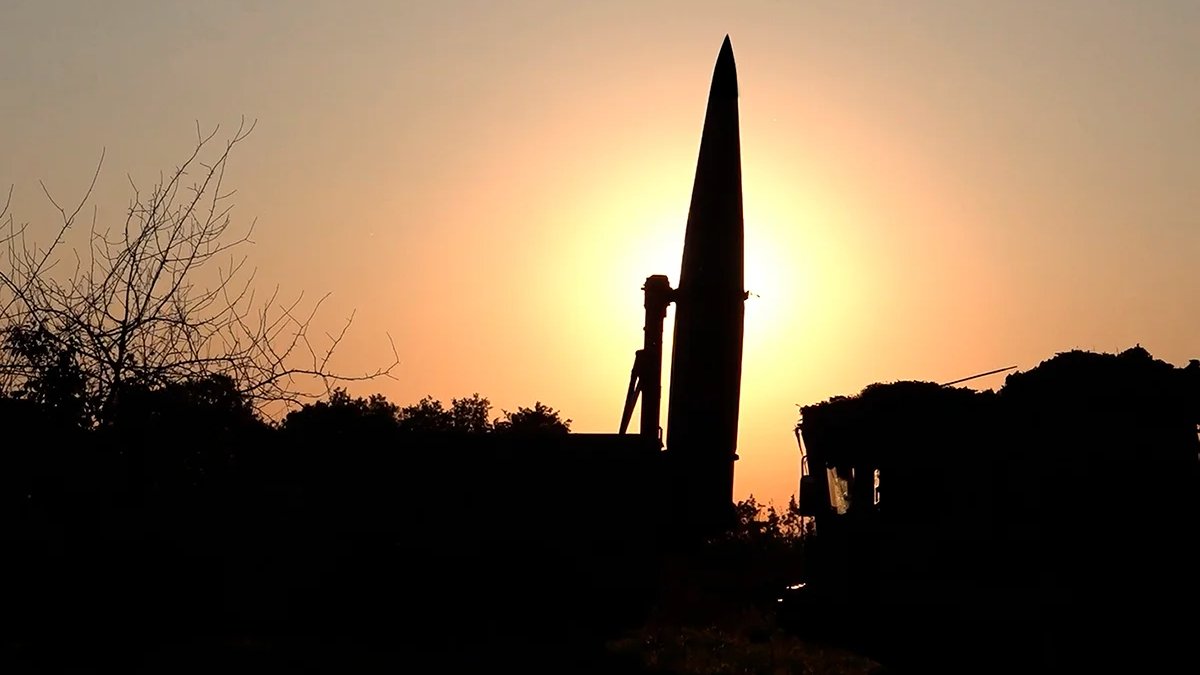Russia’s rewritten nuclear doctrine, signed by Vladimir Putin on Tuesday, has lowered the threshold for a first Russian nuclear strike, with Moscow now technically able to use nuclear weapons in response to a drone attack. Independent analyst Pavel Podvig, whose Russian Nuclear Forces Project provides policy makers with scientific analysis of nuclear weapons, arms control and disarmament, shared his thoughts on how far Russia’s nuclear escalation strategy can go.

Pavel Podvig
Independent disarmament expert
NGE: Putin signed a new nuclear doctrine two days after Ukraine was given permission by the US, UK and France to strike Russia with long-range missiles. What does that change?
PP: I don’t directly link the two things, as we know the doctrine was being worked on for a very long time, and even discussed at a Russian Security Council meeting. I don’t completely rule out that it may have brought the signing of the doctrine forward, but it’s too much to say it’s in direct response, as it was clear that the changes were already being worked on.
NGE: What changes with the new doctrine?
PP: The previous version from 2020 said that Russia reserved the right to use nuclear weapons in the event of their use against it or in the event of conventional aggression that jeopardised the very existence of the state. Aggression endangering the very existence of the state is key here. The new version still includes aggression, but only aggression that threatens Russian sovereignty or territorial integrity.
NGE: And the enemy can now be a non-nuclear country, if a nuclear country provides assistance.
PP: To some extent, that was already the case, but back then it meant a non-nuclear state acting in alliance with a nuclear one. That has now been emphasised … It isn’t a radical change, but the symbolic significance is huge.

Soldiers with a Russian ballistic missile. Photo: Alexander Zemlianichenko / AP / Scanpix
NGE: The warnings issued by the Kremlin about the new nuclear doctrine two months ago didn’t appear to scare Russia’s “enemies”. What will happen now?
PP: Over the next two months, as power in the US changes hands, it’s uncertain how this will all play out. I think the US will be paying close attention. Many in the West say Putin’s non-existent red lines are all a bluff, but I think that’s pretty irresponsible, because it is still an escalation.
“Many in the West say Putin’s non-existent red lines are all a bluff, but I think that’s pretty irresponsible, because it is still an escalation.”
NGE: You don’t think Putin is bluffing?
PP: I don’t think he’s about to use nuclear weapons. The problem lies elsewhere. Russia might escalate the conflict beyond Ukraine. My Ukrainian colleagues say Russia is continually escalating the conflict there, but to date, Russia hasn’t escalated beyond Ukraine’s borders. But now they’ve given a signal. Anyone who helps Ukraine will be considered a party to the conflict.
NGE: Yet isn’t Russia lowering the barrier to the use of nuclear weapons making that a possibility? Russia can now even use nuclear weapons in response to a drone strike.
PP: OK, so Russia reserves the right to use nuclear weapons, but there’s still the question of how. I’m saying they could only be used in a strategic sense: to change the course of the conflict, to force the enemy to surrender, or retreat, or stop resisting.

Vladimir Putin at a Security Council meeting on nuclear deterrence in the Kremlin. Photo: Alexander Kazakov / Sputnik / Kremlin Pool Photo via AP / Scanpix
NGE: Are you saying that if Russia used nuclear weapons, it would be going all out? It wouldn’t simply be a tactical strike on a railway tunnel, for example?
PP: I am. Tactical nuclear weapons won’t help Russia. It makes no sense militarily to destroy a tunnel or annihilate a unit of troops. Any use of nuclear weapons now can only be strategic, which creates a psychological, political barrier. It’s one thing to start a “special military operation”, intended to be quick and virtually painless, it’s another to decide to wipe out a large city. The thing here is to make that decision as difficult as possible, if not impossible. That’s the only way to stop Russia making that decision, regardless of what the doctrine says.
“Any use of nuclear weapons now can only be strategic, which creates a psychological, political barrier.”
NGE: And how can that be done? Who can influence Putin?
PP: We already see that attitude against the very idea of using nuclear weapons. Countries of the global South have made statements against their use, as have China, India and Germany. The G20 countries have repeatedly made similar statements, saying nuclear threats are unacceptable. There has to be clear unity on that front. And Moscow needs to understand that the political consequences of any use of nuclear weapons would be wholly negative, and that all countries would be united on that. Then we can hope it won’t happen.
NGE: In what circumstances might Russia use nuclear weapons though? Could Ukraine firing missiles at Russian troops in the Kursk region be grounds for Russia to use nuclear weapons?
PP: I don’t think so. Despite all the risks, and despite the doctrine, we are still some distance away from the use of nuclear weapons becoming a reality. The risk I see isn’t Russia using nuclear weapons any day now. The danger is that Russia may move towards escalation, directed at the Western countries it deems to be involved in the conflict.

Launch of a Sarmat intercontinental ballistic missile from the Plesetsk cosmodrome in northwestern Russia. Photo: Roscosmos Press Service / AP / Scanpix
NGE: Military analysts don’t think Putin would strike Western countries, just “take things out on Ukraine”.
PP: I can almost totally rule out the use of nuclear weapons in Ukraine. I repeat: it would make no military, tactical or strategic sense.
NGE: But would it make sense as a show of force?
PP: That is still strategic, and, no, it wouldn’t. Russia would feel all the negative repercussions, the negative reaction of the whole world, including from countries that still support Russia or are neutral. It’s highly likely that would be a unanimous position. So it doesn’t even come into question. I’m sure nuclear weapons cannot be used against Ukraine.
“The next step in escalation could be nuclear. And that would mean tens of millions of people being killed.”
But if it becomes a conflict involving the West and NATO, then it’s another matter. NATO is a nuclear bloc, and if there’s confrontation with a nuclear bloc, then any move runs the risk of causing further escalation, and the next step in escalation could be nuclear, and that would mean tens of millions of people being killed. In a confrontation with a nuclear adversary, nuclear weapons would play a completely different role, with much greater risk.
NGE: A greater risk that Russia would use nuclear weapons against the UK, say, or some other NATO country, rather than Ukraine?
PP: A greater risk that a confrontation with a NATO country would lead to the use of nuclear weapons. I won’t talk specific scenarios. But if things escalate, at some point, it has its own internal logic and becomes impossible to control. A Pentagon spokesperson has said that the US has considered or toyed with all sorts of scenarios and they all end very badly.
NGE: So what sort of scenario can you imagine? A Cuban Missile Crisis that can’t be stopped?
PP: We’re still some way away from the Cuban Missile Crisis scenario. Real systems were on high alert then.
NGE: I’m asking about a scenario in which we come as close as we did in 1962 but that doesn’t end as well.
PP: I’d still like to be cautious with my words. We just have to understand that there is a risk. We have to understand that it is very difficult to control the situation, so we mustn’t let things get that far.
NGE: And how do we do that?
PP: We have to make the very idea of using nuclear weapons unacceptable.
NGE: Who can do that? Russia’s enemies? Russia’s friends? Neutral countries?
PP: That process is already underway. Various countries made statements on the issue back in 2022. Nobody can say how China, for example, would react to such a development. China doesn’t know itself yet. And Russia doesn’t either. I just think efforts need to be coordinated. Ideally, the US or European countries should form a coalition and encourage other countries to make it clear to Putin that if he gets too keen on nuclear weapons, there’ll be very negative consequences. American rhetorical attempts at deterrence aren’t always effective, but if a broad coalition of countries united around such a position, I think it would be difficult for the Kremlin to go against everyone. There is no other option.
Join us in rebuilding Novaya Gazeta Europe
The Russian government has banned independent media. We were forced to leave our country in order to keep doing our job, telling our readers about what is going on Russia, Ukraine and Europe.
We will continue fighting against warfare and dictatorship. We believe that freedom of speech is the most efficient antidote against tyranny. Support us financially to help us fight for peace and freedom.
By clicking the Support button, you agree to the processing of your personal data.
To cancel a regular donation, please write to [email protected]

